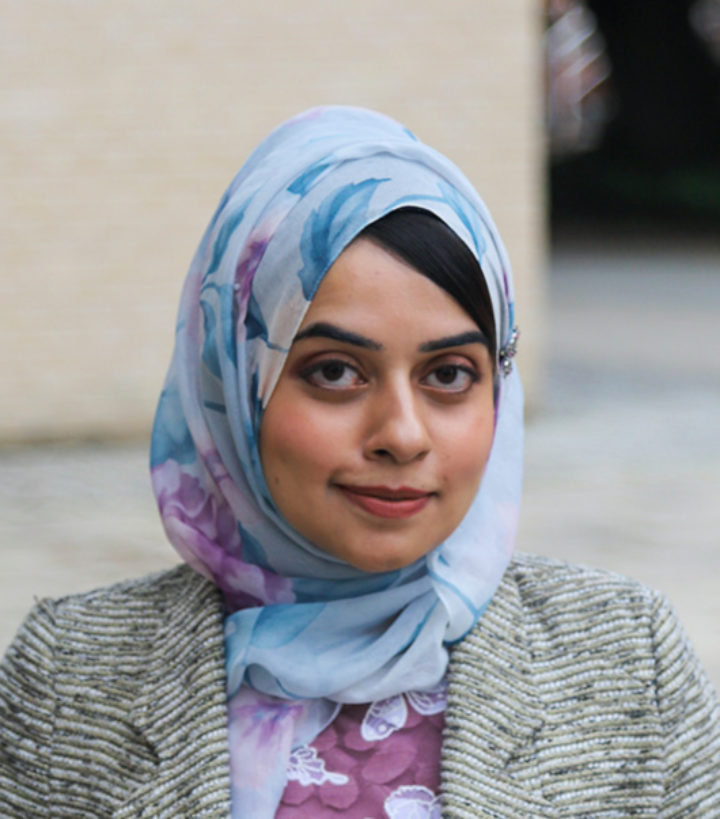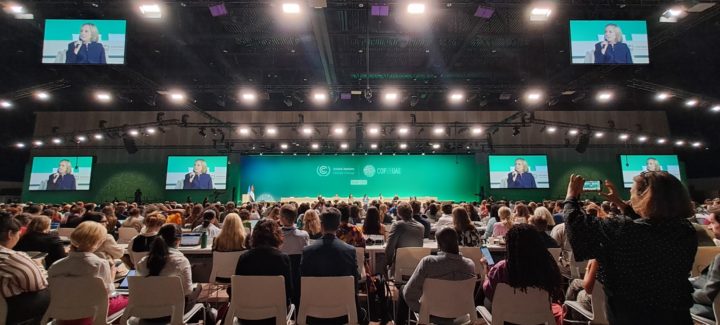Heat, hope and hurdles at COP28: reflections
Cambridge University climate scientist Rihab Khalid reflects on some of the key themes she observed at the heart of proceedings at COP28 in Dubai.
By Dr Rihab Khalid
Share
Last updated:

COP28 in Dubai metaphorically and literally turned up the heat. The presence of a record number of fossil fuel lobbyists drew criticism, particularly in light of the UAE's oil-rich status. On the other hand, delegates in Dubai, experiencing the city's intense heat, gained a tangible sense of the challenges of extreme temperatures faced by millions in the Global South. Yet, the ease of finding relief in air-conditioned spaces is a luxury available to relatively few, highlighting global disparities in climate resilience.
Loss and damage
The two extremes between Dubai's outdoor heat and the super-chilled indoor venues metaphorically mirrored the ongoing climate negotiations. The conference saw a landmark agreement with the operationalisation on day one of the loss and damage (L&D) fund, to support poorer nations with the costs if climate impacts.
Whilst the principle of major developed economies contributing to the fund is important, their financial pledges to the fund have been lukewarm, totalling US$700 million, which pales in comparison to the projected economic cost of loss and damage in developing countries, estimated to reach USD 290-580 billion by 2030.
Energy transition
On a more positive note, COP28 saw significant commitments to clean energy transitions. Over 130 countries signed the Global Renewables and Energy Efficiency Pledge, committing to triple renewable energy capacity and double energy efficiency improvements by 2030.
While carbon capture and storage technologies garnered substantial attention, it's important to recognise that these are not a panacea for the myriad climate challenges we face. In contrast, discussions around diminishing overall energy demand were notably less emphasised. For instance, the Netherlands underscored the imperative of reducing transportation emissions by decreasing reliance on transport systems during the ministerial roundtable on the transport-energy nexus. Conversely, the UK emphasised the need to sustain and potentially enhance transportation for maintaining human connectivity, focusing instead on making these systems more carbon-neutral.
Such divergent approaches highlight the complex interplay between equity and sustainability, especially relevant for developing nations where balancing climate mitigation and adaptation must be integrated with sustainable development goals. A commendable initiative in this realm was the launch of the Global Electric Cooking Coalition, aimed at transitioning away from fossil-fuel-based cooking methods. The initiative focuses on mitigating the adverse health and environmental impacts prevalent in developing countries, showcasing a critical step towards equitable and sustainable development.
Climate and conflict
This COP also uniquely focused on the intersections of climate, conflict and humanitarian action. Acknowledging that many of the people, communities, and countries threatened or affected by fragility and conflict are on the frontlines of the climate crisis, more than 70 countries and 40 international and humanitarian organizations signed the COP28 declaration to enhance support in fragile settings, addressing both immediate humanitarian needs and long-term resilience.
Gender and climate
Justice and inclusivity were central themes at COP28. Gender Equality Day saw women leaders advocating for an end to gender gaps and highlighting the impacts of climate change on women and girls.

Financing for gender-responsive transitions has been a key focus, with the launch of the Gender-Responsive Just Transitions & Climate Action Partnership, backed by 68 Parties. This is especially welcome as evidence shows that only 4% of bilateral aid is currently dedicated to gender-focused programmes. Recognition was also given to women’s economic empowerment and the inclusion of policies to support the care economy as a key part of gender-just transitions. In addition, indigenous women emphasised their role in environmental stewardship across many dedicated events. The impact of heat stress on vulnerable women’s well-being, care work and livelihoods was particularly stressed during key plenaries and presidency dialogues.
The most inspiring messaging on climate justice came from civil society groups that have been vocal about integrating human rights into climate discussions. Advocacy groups like the Climate Action Network and War on Want highlighted disparities in carbon emissions and economic models that favour profits over people and planet. Their demonstrations across COP28 underscored the need for transformational policies and financial support for climate justice in developing nations.
Delivering the means of implementation
With over 95,000 delegates, COP28 is the largest in history. Whilst it has shown promising steps towards inclusivity and diversity, challenges remain such as improving women's representation, curbing fossil-fuel influence, and spotlighting models of sufficiency and delimiting growth for delivering science-based climate action.
Having only been there for the first week, when parties were still far apart on negotiations, I could not judge where it had all fed in to before I left. However, the proof of the pudding for a successful COP28 outcome should, in my view, be in the final financial commitments for climate mitigation, adaptation and loss and damage. Looking back now on week two and the overall results, it appears to be a mixed bag. But tempered by the delivery of the loss and damage fund, and a strong message about the years, if not the days, being numbered for fossil fuels.
Dr Rihab Khalid is Isaac Newton Trust Research Fellow at Lucy Cavendish College, University of Cambridge. She attended week one of COP28 in the UAE as part of ECIU's delegation.